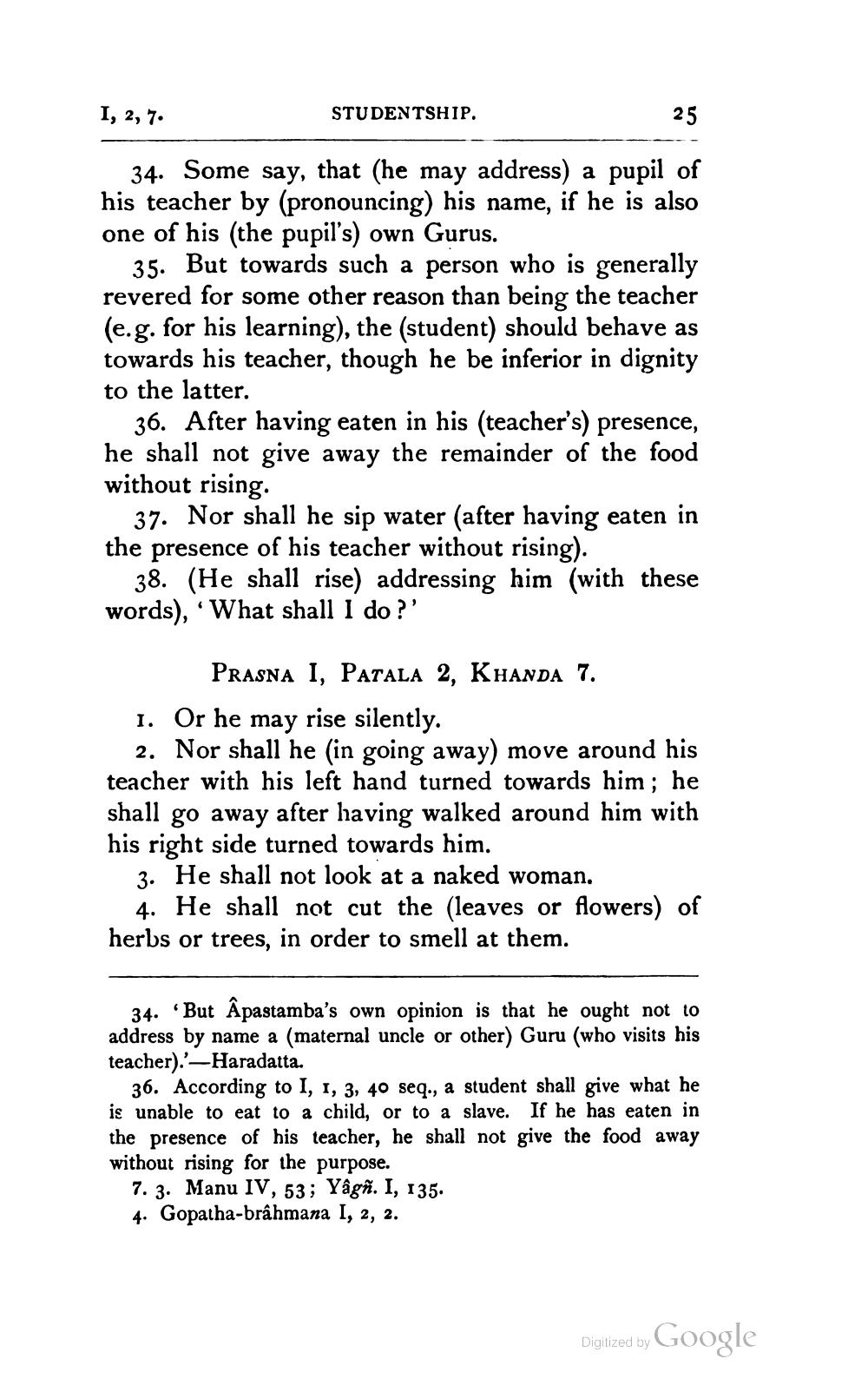________________
I, 2, 7.
STUDENTSHIP.
25
34. Some say, that (he may address) a pupil of his teacher by (pronouncing) his name, if he is also one of his (the pupil's) own Gurus.
35. But towards such a person who is generally revered for some other reason than being the teacher (e.g. for his learning), the (student) should behave as towards his teacher, though he be inferior in dignity to the latter.
36. After having eaten in his (teacher's) presence, he shall not give away the remainder of the food without rising.
37. Nor shall he sip water (after having eaten in the presence of his teacher without rising).
38. (He shall rise) addressing him (with these words), 'What shall I do?'
PRASNA I, PATALA 2, KHANDA 7. 1. Or he may rise silently.
2. Nor shall he (in going away) move around his teacher with his left hand turned towards him; he shall go away after having walked around him with his right side turned towards him.
3. He shall not look at a naked woman.
4. He shall not cut the leaves or flowers) of herbs or trees, in order to smell at them.
34. "But Âpastamba's own opinion is that he ought not to address by name a (maternal uncle or other) Guru (who visits his teacher).'-Haradatta.
36. According to I, 1, 3, 40 seq., a student shall give what he is unable to eat to a child, or to a slave. If he has eaten in the presence of his teacher, he shall not give the food away without rising for the purpose.
7. 3. Manu IV, 53; Yâgñ. I, 135. 4. Gopatha-brâhmana I, 2, 2.
Digitized by Google




